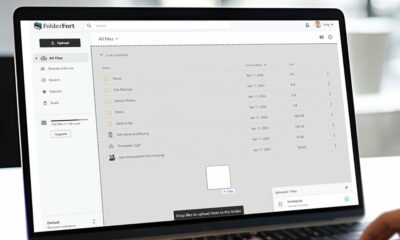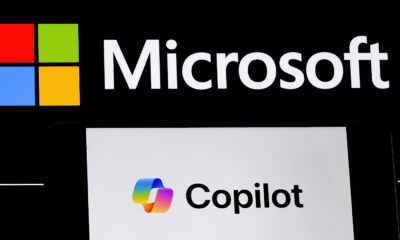Data privacy is arguably the most pertinent topic in marketers’ minds these days. Whether it’s GDPR, CCPA, or upcoming U.S. federal privacy laws, brands know they may face legal jeopardy if any of these pieces are out of place. Yet it’s more than that — consumers are demanding privacy.
“As consumers demand more transparency and new laws and regulations come into effect, brands must reconsider their data practices and think beyond legal compliance to stay in the game,” said Priscilla Debar, Acoustic’s Associate General Counsel, at our MarTech conference.
Adhering to data ethics laws puts marketers on the right side of the legal battle and improves customer satisfaction levels by giving them what they want. But the trust that it builds among customers can be even more impactful.
“It’s about fostering a relationship between your brand and your customers that is built on trust,” she said. “Partnering with legal to embrace an ethical approach to your data collection and news does that.”
Here are three tactics Debar recommends marketers use to build customer trust through proper data ethics.
Adhere to data ethics within our privacy landscape
“Virtually all aspects of our lives revolve around data,” Debar said. “Think about social media online shopping, content, streaming, banking, or even healthcare. All these day-to-day activities involve the sharing of our personal data with companies. As more data is being collected and more organizations have access to it, it becomes important to have robust data protection laws to ensure that consumers are not only aware and consent to the sharing of personal information, but also that it’s handled with the appropriate level of care and accountability.”
These data privacy laws aren’t the only things spurring change in the marketing landscape. The tech giants’ charge toward better regulation practices is paving the way for further adoption.

“Some of the largest players of the digital space who have gotten ahead of customers expectations and have been regulating themselves by adopting rules that go beyond what is legally mandated,” said Debar. “Apple has restricted third-party tracking cookies and Google is doing the same thing by 2023.”
She added, “These moves are setting the tone for what is going to be market standard, and they’re forcing market professionals to adapt and rethink how they work.”
The brands that best grasp the new privacy landscape will be best equipped to connect with customers across it.
Partner with legal teams
“While navigating the landscape might be complex, data privacy is the cornerstone upon which assets of any business operating in the digital space are built,” Debar said. “Failure to comply with privacy rules can harm brands, as this can result in litigation regulatory enforcement which comes with large fights, harm to your company’s reputation, and loss of customer confidence.”
To avoid these potential lawsuits and trust issues, brands should prioritize partnering with legal teams before enacting any form of data collection across their campaigns. This will help them better prepare for any potential privacy troubles.
“Rather than reacting and reaching out to legal as an afterthought, reach out early on and partner with the attorneys on your team,” she said. “Strategize around how you can conduct these routine activities in ways that are not only legally compliant but also ensure that the way you’re planning to use the data makes sense with the kind of relationship you’re looking to build and maintain with your audience.”
She added, “It’s important not to be frustrated about the restrictions that might be imposed on marketers.”

Leverage data ethics as a competitive differentiator
“Data ethics is a fairly new concept that businesses have not yet fully grasped or invested resources in, but it’s something that consumers want,” Debar said. “Companies embracing an ethical approach, focusing on being just, being good, and creating a positive customer experience, will be rewarded.”
Customers remember brands that treat them well; data collection practices are no exception. Companies can stand out from their competition by placing data ethics at the forefront of their marketing strategies.
“Data ethics can give you a competitive advantage for your customers by leaving them more than competitors are offering in terms of understanding their needs and respecting their boundaries. This will allow you to keep your customers and maintain the level of trust that they’ve given you in the first place.”
She added, “The better people are treated, the more motivated they will be to share information with you.”
Watch the full video presentation from our MarTech conference here (free registration required).
Identity resolution platforms: A snapshot
What it is. Identity resolution is the science of connecting the growing volume of consumer identifiers to one individual as he or she interacts across channels and devices.
What the tools do. Identity resolution technology connects those identifiers to one individual. It draws this valuable data from the various channels and devices customers interact with, such as connected speakers, home management solutions, smart TVs, and wearable devices. It’s an important tool as the number of devices connected to IP networks is expected to climb to more than three times the global population by 2023, according to the Cisco Annual Internet Report.
Why it’s hot now. More people expect relevant brand experiences across each stage of their buying journeys. One-size-fits-all marketing doesn’t work; buyers know what information sellers should have and how they should use it. Also, inaccurate targeting wastes campaign spending and fails to generate results.
This is why investment in identity resolution programs is growing among brand marketers. These technologies also ensure their activities stay in line with privacy regulations.
Why we care. The most successful digital marketing strategies rely on knowing your potential customer. Knowing what they’re interested in, what they’ve purchased before — even what demographic group they belong to — is essential.
Read next: What is identity resolution and how are platforms adapting to privacy changes?




















You must be logged in to post a comment Login